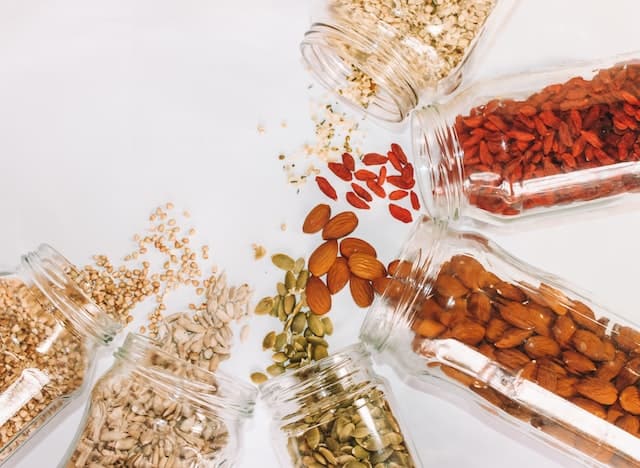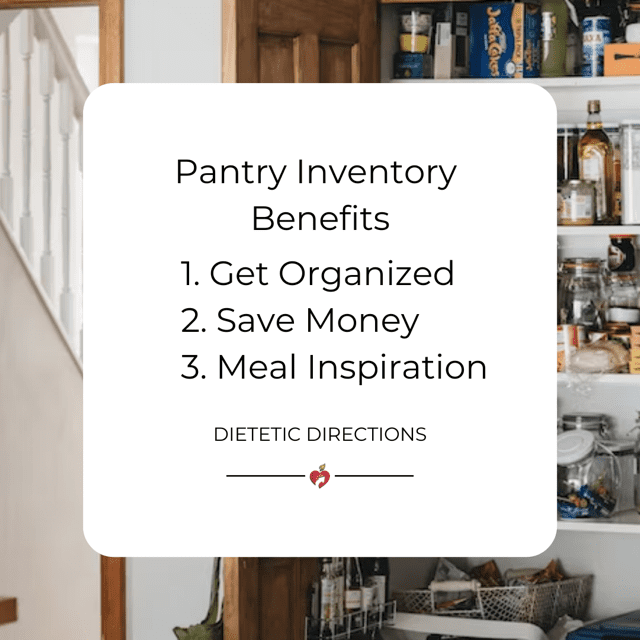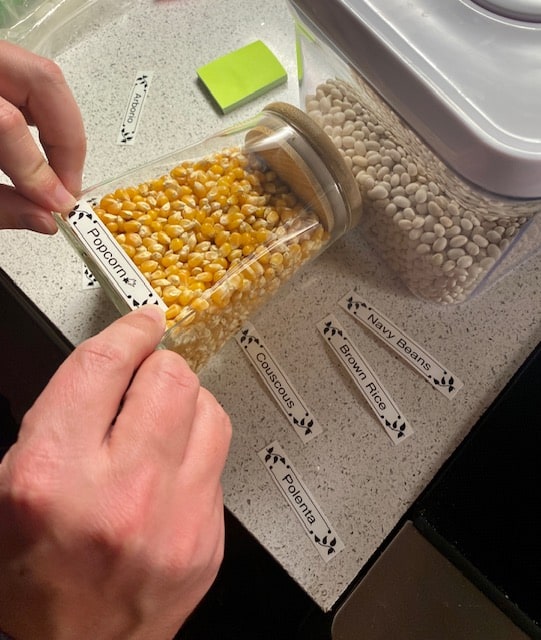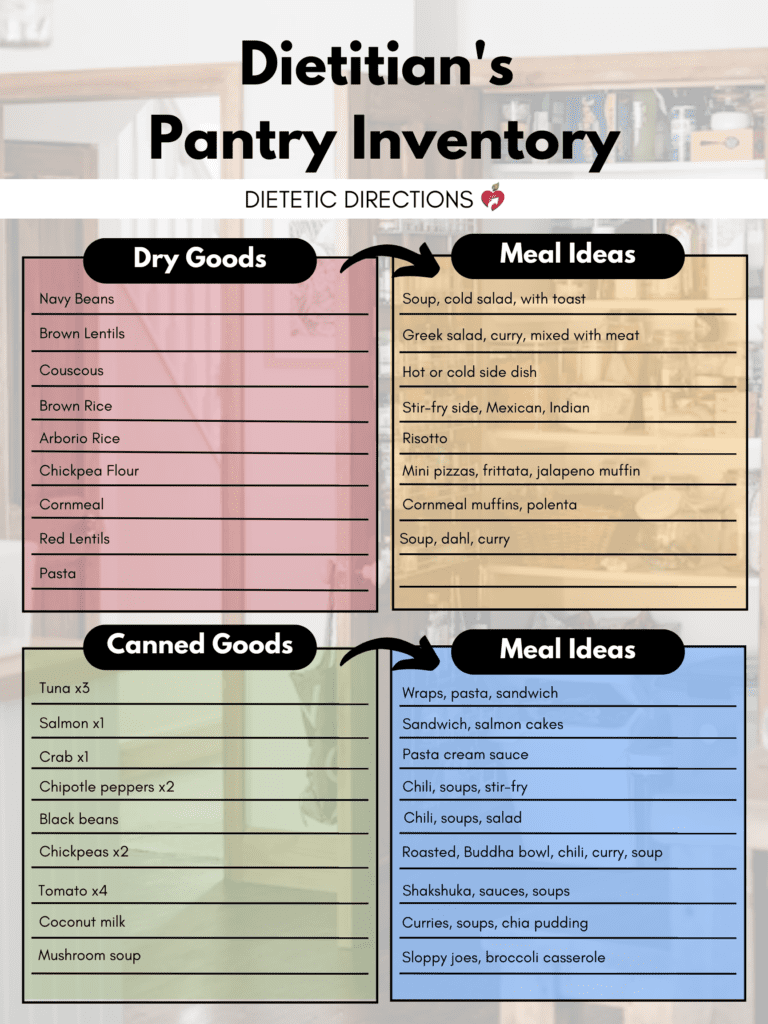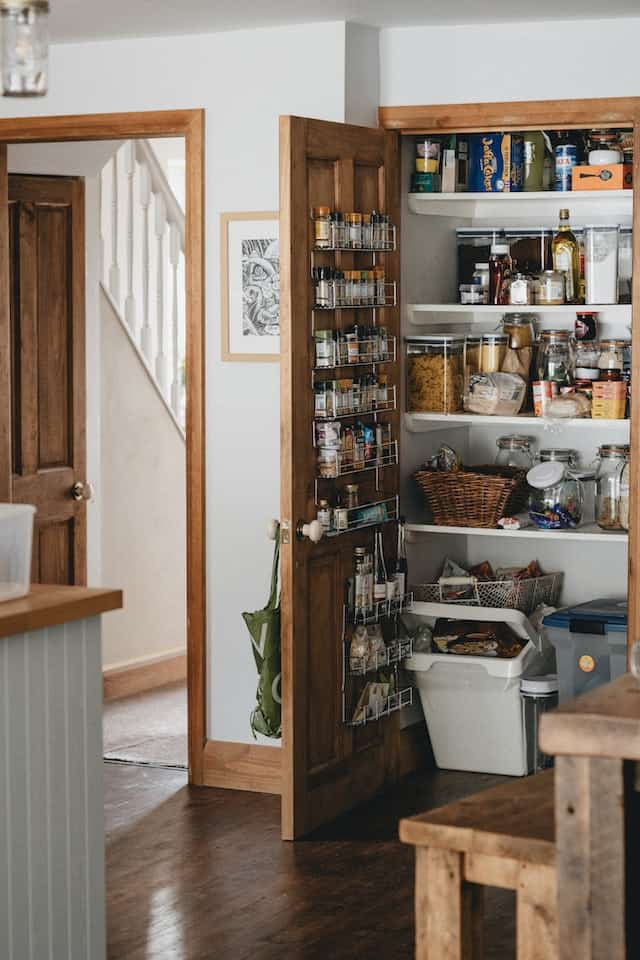
Dietitian’s Easy Pantry Inventory
A pantry inventory is key in having an organized kitchen. After all, how often do you buy canned foods or dried goods (especially when sales incentivize you) and then later forget about them? I know I am guilty of this. Are you too? Nevertheless, to celebrate the New Year, as a Registered Dietitian, I want to help you become more organized, save money by using what you have and importantly, and get inspired with nutritious meal ideas.
Today’s blog will discuss 3 easy steps to a successful pantry inventory. Additionally, I will show my before and after inventory photos. Nevertheless, as a new mom, I completed my inventory before my daughter arrived. I’m so glad I did and sure you’ll be too!
3 Easy Steps for a Pantry Inventory
1. Clear it Out (and Clean it Out)
First step is to clear everything out and literally wipe down and disinfect all surfaces – shelves and cupboards. You will find dust, crumbs and it just feels so much better to see your pantry sparkle.
2. Organize Your Pantry
Next, once you remove all pantry items and cleaning surfaces, place your items on a table or large surface, like a kitchen island. This way you can see everything. Next, sort similar items into groupings and store bagged foods in clear containers with labels for better organization. For example, I placed similar items together – canned foods, pasta, duplicate items and baking supplies.
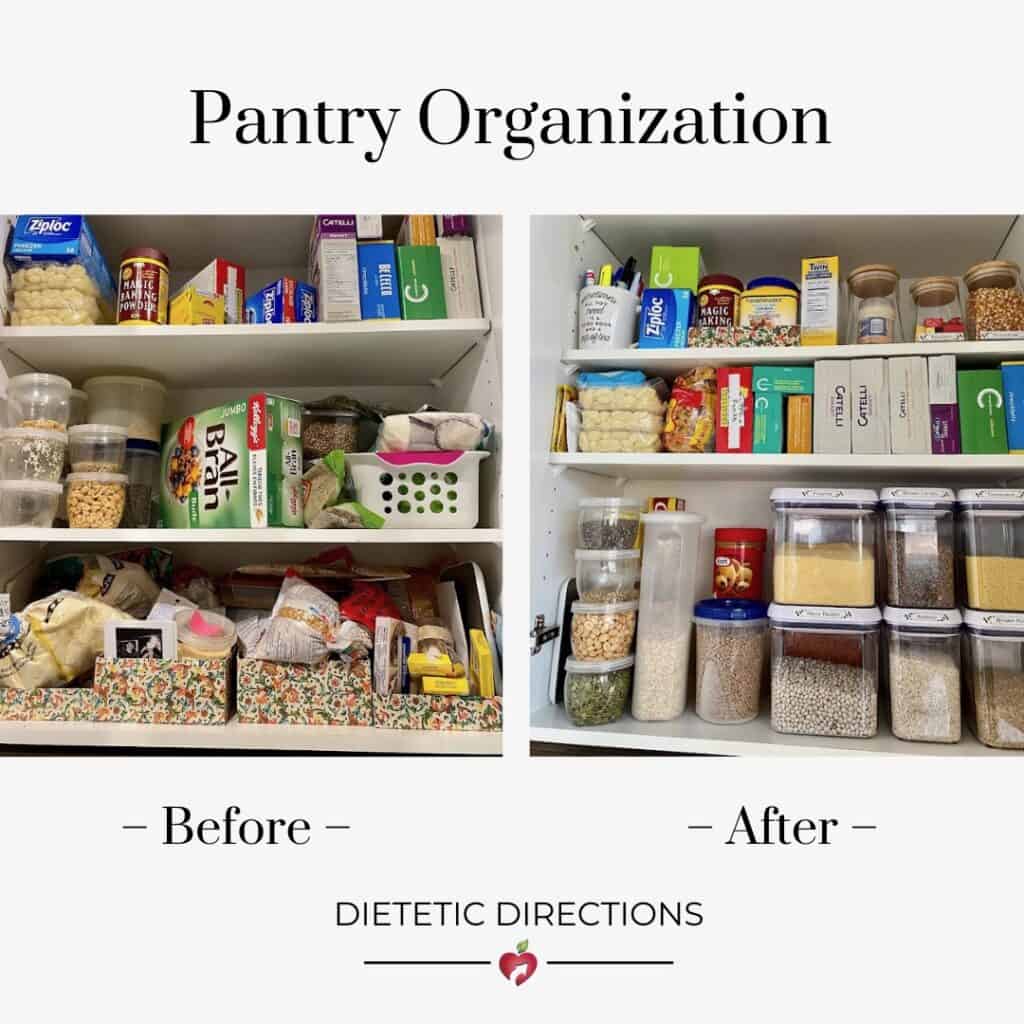
Pantry Inventory Organization Tips:
- Check expiration dates and toss anything that’s past its prime or no longer in use.
- Next, use clear, stackable containers instead of bags and unmarked or opaque containers (since you can’t see into them).
- Use small bins to organize items that are loose like coconut, chocolate chips, etc. This maximizes space and helps you organize what you have.
- Keep a F.I.F.O (First-in, First-Out) system, where you place the newer items behind and use the older items first. Alternatively, you may have a designated overflow (extras section).
- Label! Even if you know what something is (ex. red lentils) your family might not. Clearly labelling containers helps with improved organization.
3. Keep a Pantry Inventory Sheet
Finally, I recommend using a pantry inventory sheet (see mine below) to write down what you have and then update it when items are added or removed. Additionally, an inventory sheet acts as a brainstorming tool for ways to use these items for nutritious meals. For example, you bought canned black beans for a reason, so why not have them on your inventory sheet to remind you of terrific meals that use this ingredient such as Vegetarian Chili Bowls, Fish Tacos or Coconut Caribbean rice. Therefore, having meal ideas beside pantry items helps with Meal Planning so you can have an intentional plan and purchase other ingredients needed. For related information, read our popular blog Meal Planning vs a Meal Plan.
Here’s my Dietitian Pantry Inventory Template:
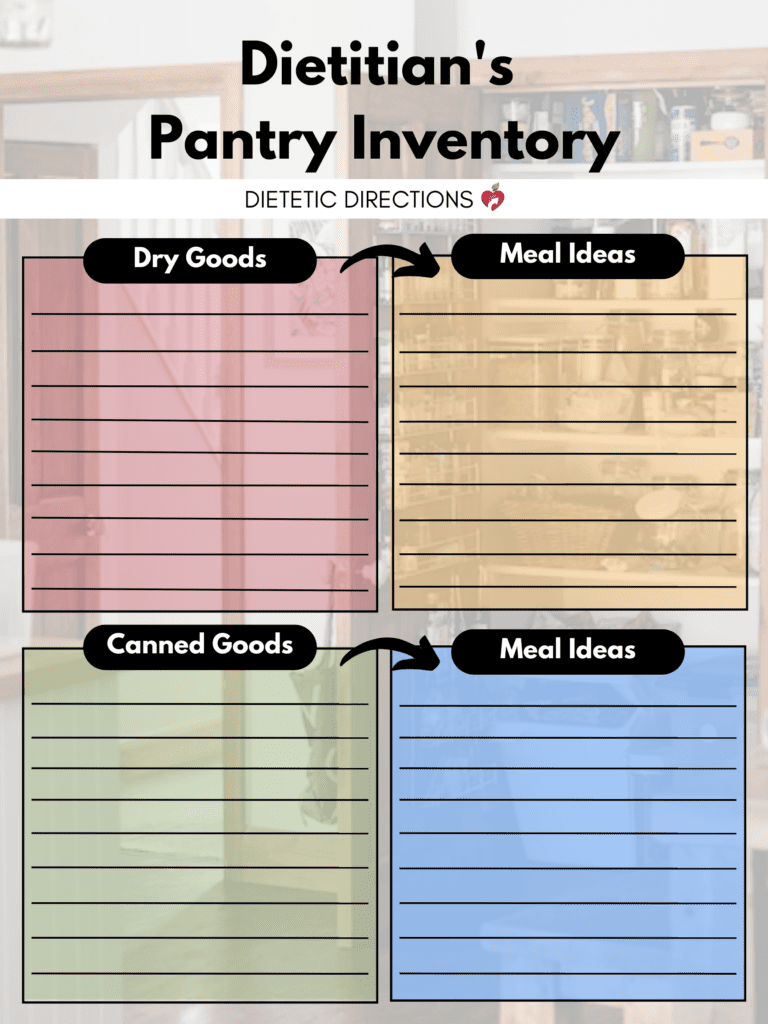
Dietitian Andrea’s Example:
Bottom Line:
A pantry inventory is an excellent way to get your kitchen better organized. Firstly, clear out and clean out your pantry. Next, organize foods into categories and store in clear glass or plastic labelled containers. Finally, keep an updated inventory sheet that aligns the items you have with meal ideas. This will help you meal plan to use them up! Additionally, if you’re all about kitchen organization, check out how to do a freezer inventory for more templates and tips.
Have you done a pantry inventory? How did it feel to get better organized? Let us know if you use our template to get inspired with healthy meals. Share before and after pictures with @DieteticDirections on social media as well!


